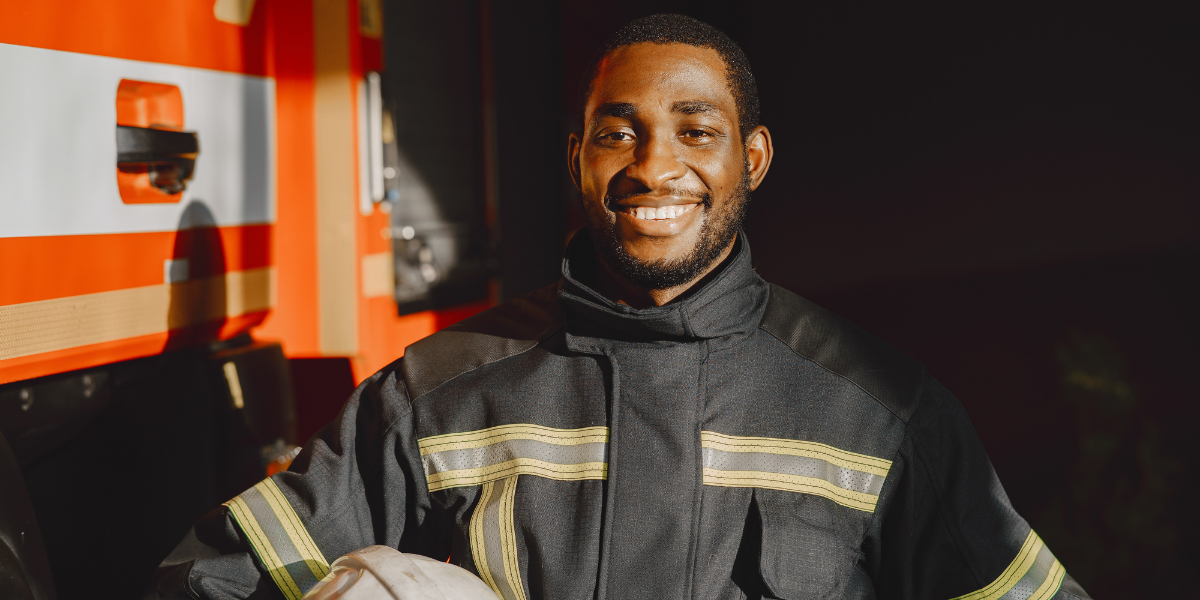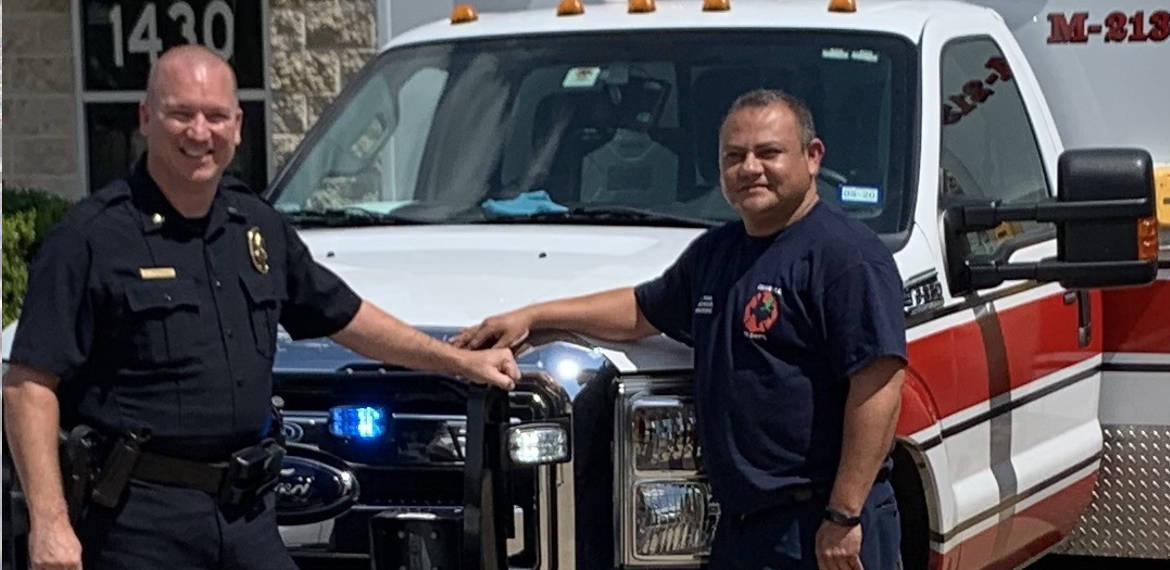
Responding to Post Traumatic Stress in Veterans & First Responders
In the face of traumatic experiences (a regular part of the day-to-day routine of first responders and a significant risk for many in military service), individuals sometimes experience the effects of post traumatic stress (PTS). PTS “occurs after an individual has seen or experienced a traumatic event that involved injury, the threat of injury, or death.”
PTS and PTSD
More than 80% of the first responder community reports experiencing a traumatic event at some point in their career, and approximately 1 in 3 first responders will develop Post Traumatic Stress Disorder, or PTSD. While PTS shares many similarities with PTSD, and both are a prevalent concern for first responders, they are not the same. Fortunately, there is hope for first responders experiencing PTS, and a variety of solutions to dealing with symptoms of PTS.
Similarly, more than 90% of our nation's veterans have experienced at least one potentially traumatic event, and 23% of those receiving care related to a service-connected illness or injury at the VA will be diagnosed with PTSD.
While PTS shares many similarities with PTSD, and both are a prevalent concern for first responders and veterans, PTS and PTSD are not the same. Fortunately, there is hope for clients experiencing PTS, and a variety of solutions to dealing with symptoms of PTS.
pts as a first responder
The first time Heath Holland experienced PTS as a first responder was approximately a month into his career. While he had been warned about the things we would see in this profession and had experienced the presence of a dead body before, his crew encountered a gruesome call in which a single person had been involved, and the experience was completely foreign to his young first responder mind. The call began well into the night, so by the time they wrapped up and headed back to the station, the sun was rising, and it was time to return home.
Heath did not remember the car drive home. He remembered white knuckle gripping the steering wheel, turning off the radio so he could think straight, and attempting not to close his eyes for fear of seeing the incident again in his head. For the next few days, the memory of the scene played on repeat and finally culminated in a nightmare vivid enough to wake him up in a panicked sweat grasping for his wife to make sure they were both safe.
It’s difficult to admit when you need help, especially when you are brand new in a department and believe you have everything to prove, including how well you can manage on your own.
For some first responders, the image will fade and life will resume some semblance of normal. Post traumatic stress does not always end in a diagnosis of Post Traumatic Stress Disorder, a life full of frustrating symptoms, and a career spent angry and afraid of whatever call awaits us the next day
There are consequences first responders face following emotionally charged or chaotic calls. Contrary to popular belief, not every person experiencing PTS necessarily has PTSD. While PTSD can appear to be a simple label to throw on actions and feelings in the wake of a traumatic event, an actual diagnosis can not be made without time and severity along with a specific set of diagnostic criteria. However, PTS symptoms and PTSD criteria have an overlap. While not comprehensive, the most often experienced symptoms are listed below:
post traumatic stress symptoms
- Intrusive Thoughts – unavoidable flashbacks and memories, often causing the person to feel as though they were back in the moment of the event.
- Nightmares – dreams related to the traumatic experience which can be frightening or unsettling in nature.
- Avoidance – attempting to distance oneself from the location of the traumatic event or any triggers which may cause the individual to think about the event.
- Mood Swings – sudden irritable behavior, angry outbursts, aggression towards self or others, sudden hypervigilance, and/or intense problems with concentration.
- Negative Thoughts and Beliefs – persistent unrealistic expectations of oneself such as “I should have done more,” or “I am a bad person,” and/or feelings of detachment or loss of interest in others and activities usually beneficial to the individual.
These symptoms can be confusing and frustrating for both the individual experiencing them, and their family members or people who they spend the most time with. To combat PTS symptoms, learning to cope appropriately is key. Some positive coping mechanisms for PTS may include:
coping skills for pts
- Relaxation – breathing exercises, meditation, mindfulness
- Self-Care – eating healthy meals, exercising, sleeping, and taking care of your physical needs
- Talking – finding another individual to confide in who will be beneficial to your stress
- Grounding Techniques – utilizing skills to ground yourself in reality rather than focusing on the trauma experience
- Substance Avoidance – do not slam energy drinks, alcohol, nicotine, or really any harmful substance in order to feel better
If you notice the signs of PTS in yourself or another in the wake of a traumatic event, keep track of the symptoms and see how they progress. If coping mechanisms alone are not helping, or the PTS symptoms become persistent and detrimental to your life, please seek help. Addressing PTS with a counseling professional can be a difficult step to take, but one worth taking if you are watching your mental health decline in real time. PTS is a regular occurrence for first responders, and you are not alone in the wake of experienced trauma.
If you're a veteran or first responder looking for help managing stress, find a trauma and PTS specialist at a Lifeologie Counseling location near you!

About Lifeologie
Lifeologie Counseling was founded in 2000 with one goal in mind — to bring a fresh, innovative approach to the everyday problems of life. Creative solutions to stuck problems®. With our unique multi-specialty, collaborative approach, Lifeologie Counseling helps individuals and families heal their wounds and break out of old, unhealthy patterns.
.png)



.png)